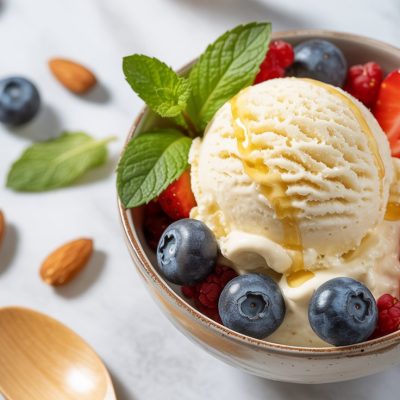Nothing transforms a simple piece of chicken into a mouthwatering meal quite like the perfect seasoning. Whether you’re grilling, roasting, frying, or baking, the right combination of spices can make all the difference. Have you ever noticed how restaurant chicken bursts with flavor and wondered what their secret is? The secret often lies in the seasoning — the magical blend of herbs, spices, and love that brings your dish to life.
In this comprehensive guide, we’ll explore the best chicken seasoning options, how to create your own blends, and tips to make your chicken flavorful every single time.
Introduction to Chicken Seasoning
Seasoning chicken is more than just adding salt and pepper — it’s an art form. The way you combine herbs, spices, and flavor enhancers can elevate your chicken from bland to brilliant. Think of seasoning as painting a canvas, where each spice adds color, depth, and personality to your dish.
Why Seasoning Matters for Chicken
Chicken is like a blank canvas. Its mild flavor makes it perfect for soaking up spices and herbs. Without seasoning, chicken can taste flat or dull. Proper seasoning enhances natural flavors, adds aroma, and gives your dish a signature taste that people remember.
Types of Chicken Seasoning

There’s no one-size-fits-all seasoning for chicken. Depending on your cooking style and preferences, you can choose from various seasoning styles:
-
Dry Rubs: A mix of ground spices and herbs rubbed directly onto the meat.
-
Wet Marinades: Combine spices with liquids like olive oil, lemon juice, or yogurt for extra tenderness.
-
Brines: A salt-based solution that infuses flavor deep into the chicken while keeping it juicy.
Each type adds its own unique flair and is perfect for different dishes and cooking methods.
Classic Homemade Chicken Seasoning Blend
If you want a versatile, all-purpose seasoning, this homemade mix is a must-try.
Ingredients:
-
2 tsp paprika
-
1 tsp garlic powder
-
1 tsp onion powder
-
1 tsp dried thyme
-
½ tsp black pepper
-
1 tsp salt
Instructions:
Mix all the ingredients thoroughly and keep them in a tightly sealed jar to preserve their freshness and flavor. Sprinkle generously on your chicken before cooking. This blend works perfectly for baked, fried, or grilled chicken.
Smoky BBQ Chicken Seasoning
Love that backyard barbecue flavor? A smoky BBQ seasoning gives your chicken that irresistible grilled aroma even if you’re cooking indoors.
Key Ingredients:
Smoked paprika, brown sugar, cayenne, chili powder, and garlic powder.
Tip: The brown sugar caramelizes beautifully on the grill, creating a smoky-sweet crust that’s simply divine.
Mediterranean Herb Seasoning
For a lighter, herbaceous flavor, Mediterranean seasoning is your go-to. It pairs perfectly with roasted or baked chicken.
Key Ingredients:
Oregano, basil, thyme, rosemary, lemon zest, and olive oil.
Cooking Tip: Try combining this with a squeeze of fresh lemon juice for a bright, fresh taste.
Spicy Cajun Chicken Seasoning

If you enjoy a little heat, Cajun seasoning will excite your taste buds. Originating from Louisiana, this blend packs bold, smoky, and spicy flavors.
Key Ingredients:
Pro Tip: Balance the heat with a touch of brown sugar to keep it flavorful without overwhelming spice.
Lemon Pepper Seasoning for Chicken
This classic blend delivers a burst of citrus and peppery goodness — ideal for pan-seared or grilled chicken.
Ingredients:
Lemon zest, black pepper, salt, and garlic powder.
Cooking Tip: Add a drizzle of butter while cooking for a zesty, aromatic touch.
Asian-Inspired Chicken Seasoning
Asian flavors bring balance — sweet, salty, sour, and umami all in one.
Key Ingredients:
Soy sauce, ginger, garlic, sesame oil, and a pinch of five-spice powder.
Pro Tip: Perfect for stir-fries or grilled skewers. Add honey for a sweet glaze effect.
Best Store-Bought Chicken Seasoning Brands
If you prefer ready-made blends, several top brands offer excellent options:
-
McCormick Grill Mates: Famous for smoky and BBQ blends.
-
Lawry’s Seasoned Salt: Great for all-purpose chicken flavoring.
-
Weber Kick’n Chicken: Perfect for spicy and grilled dishes.
-
Trader Joe’s Lemon Pepper: Light and aromatic for roasted chicken.
-
Old Bay: A versatile mix ideal for fried chicken or seafood-style dishes.
Tips for Applying Seasoning Correctly
The way you apply seasoning matters just as much as what you use.
-
Pat the chicken dry before seasoning for better adherence.
-
Season generously — under-seasoning is a common mistake.
-
Massage the seasoning into the meat for even distribution.
-
Let it rest for 15–30 minutes before cooking to absorb flavors.
Marinating vs. Dry Rubs

Marinades infuse flavor through liquids — great for tenderness and moisture. Dry rubs, on the other hand, create a flavorful crust.
Pro Tip: Use marinades for baking or grilling, and dry rubs for frying or roasting. Both techniques can elevate your chicken depending on your desired texture.
Mistakes to Avoid When Seasoning Chicken
Even experienced cooks make seasoning errors. Here are common ones to avoid:
-
Adding salt too early (it can draw out moisture).
-
Overusing strong spices like cumin or clove.
-
Skipping resting time before cooking.
-
Forgetting to season under the skin (for whole chicken).
Avoid these, and you’ll consistently achieve flavorful results.
Healthy Seasoning Alternatives
Looking to reduce sodium or processed ingredients? Opt for natural, healthy alternatives:
-
Replace salt with lemon juice or vinegar for tanginess.
-
Use fresh herbs like parsley, cilantro, or dill for a bright touch.
-
Choose smoked paprika instead of artificial flavoring.
Healthy doesn’t have to mean bland — it’s all about smart seasoning.
FAQs
1. What is the best seasoning for chicken?
It depends on your preference! For everyday use, an all-purpose blend of paprika, garlic powder, thyme, salt, and pepper works perfectly.
2. How long should I marinate chicken for the best flavor?
At least 30 minutes is ideal, but marinating for 4–6 hours allows the flavors to penetrate deeper.
3. Should I season chicken before or after cooking?
Always season before cooking to allow the flavors to absorb. However, adding a light sprinkle of salt after cooking can enhance taste.
4. Can I use the same seasoning for grilled and fried chicken?
Yes, but adjust for the method — grilled chicken pairs well with smoky or citrusy blends, while fried chicken benefits from savory and peppery mixes.
5. What’s the best way to make seasoning stick to chicken?
Pat the chicken dry and coat it with a little oil before applying seasoning. This helps the spices adhere and form a delicious crust.
Final Thoughts on the Best Chicken Seasoning
Great chicken isn’t just about the cut or the cooking method — it’s about the seasoning. Whether you prefer smoky, spicy, or zesty flavors, finding the right blend makes all the difference. Think of seasoning as the music that brings your chicken to life — each spice is an instrument, and together, they create a delicious harmony.
Experiment, adjust, and make it your own — because the best seasoning is the one that matches your taste.










